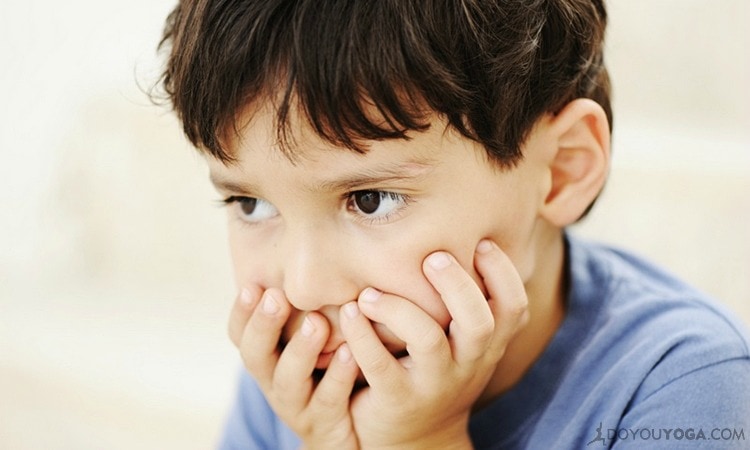Attention-Deficit Hyperactive Disorder (ADHD) affects millions of children and adults in the United States. It is one of the most common neurobehavioral disorders in adolescents and can follow directly into adulthood.
It is commonly estimated that in a classroom of 30 students, one in three will be eventually diagnosed with ADHD, and many adults suffer from it, but are simply unaware that they have it. Unfortunately, the vast majority of these children and adults will simply be treated with the use of modern medications, when there are natural alternatives and healthier solutions for their bodies.
One of the best natural solutions could be the practice of yoga.
Understanding ADHD
To start, it is important to understand precisely what ADHD is, and the effect it has on one's mind. Some symptoms to note are: a great amount of time spent daydreaming, forgetfulness, misplacing items often, the inability to sit still, making careless (and often reckless) mistakes, finding it difficult to resist temptation, difficulty sharing and taking turns, and having a hard time getting along with others.
There are also several causes being researched into what exactly causes ADHD. Some possibilities include; brain injuries, alcohol and substance abuse during one's pregnancy, environmental factors, premature deliveries, and low-birth weight.
More research is being conducted and there is still much confusion among scientists and researchers as to why it develops in people. It is often difficult to determine if an adult or child is suffering from ADHD because there are also other issues such as depression, anxiety, and particular learning disabilities that share the very same symptoms as ADHD.
Treating ADHD With Modern Medicine
There are several treatment options for ADHD sufferers, namely medications of either stimulants or non-stimulants depending on the certain type of ADHD diagnosis. Behavioral intervention strategies can be introduced such as therapy or special classes for children in addition to the medication.
It is unfortunately estimated that 2.5 million children (between the ages of 4-7) in our nation are presently being treated for ADHD with medications such as Ritalin, Straterra, and Adderall XR, along with many others, and often cocktails of several medications at once. A great majority of these drugs also have very scary side-effects, such as suicidal thoughts and tendencies, and sometimes mania and hypermania.
Many parents and adult-sufferers are opting for natural alternatives such as homeopathic remedies or herbal and aromatherapeutic treatments to help them cope with their ADHD. Many more are turning to yoga to slow their minds and calm their bodies.
In fact, a study conducted in Germany in 2006, showed significant relief and improved focus in children and adults alike who practiced yoga regularly.
How Can Yoga Help You Or Your Loved Ones?
Asanas can provide excellent relief in regards to ADHD symptoms, as they allow increased oxygen and blood flow to the brain — which can have a balancing effect on the nervous system as a whole.
They can help you to learn to lengthen and deepen the breath, which allows for an overall feeling of calm.
Children and adults who suffer from ADHD often find themselves unable to connect their bodies and their minds, and yoga allows for precisely that connection to occur. The main goals are to quiet the mind and develop concentration.
Another incredibly important benefit in coping with ADHD is learning how to settle yourself when things feel out of control. Yoga teaches deep breathing which eases the mind, allowing you to cope much easier in difficult situations. It also increases your awareness to allow you to better control your emotions.
Yoga Can Help You Heal
Yogic practice can help improve self-esteem, reduce depression and anxiety, and can allow yourself or your children to be able to develop better relationships with those around them.
It is important to find a great yoga instructor to help guide the path to healing. The instructor can make all the difference in your child or yourself thoroughly enjoying and understanding yoga.
Some instructors are beginning to incorporate classes based upon restorative poses specifically for ADHD sufferers. However, if there are no such programs available in your area, it is important to make sure that you speak with your yoga teacher so they are aware of what you (or your children) are dealing with, and they can help you based upon your needs.
There is help available, but only you can take that first step to free yourself or your children of the difficult symptoms associated with ADHD.

Want to contribute as a member of the DOYOU community too? Submit your article right here!


